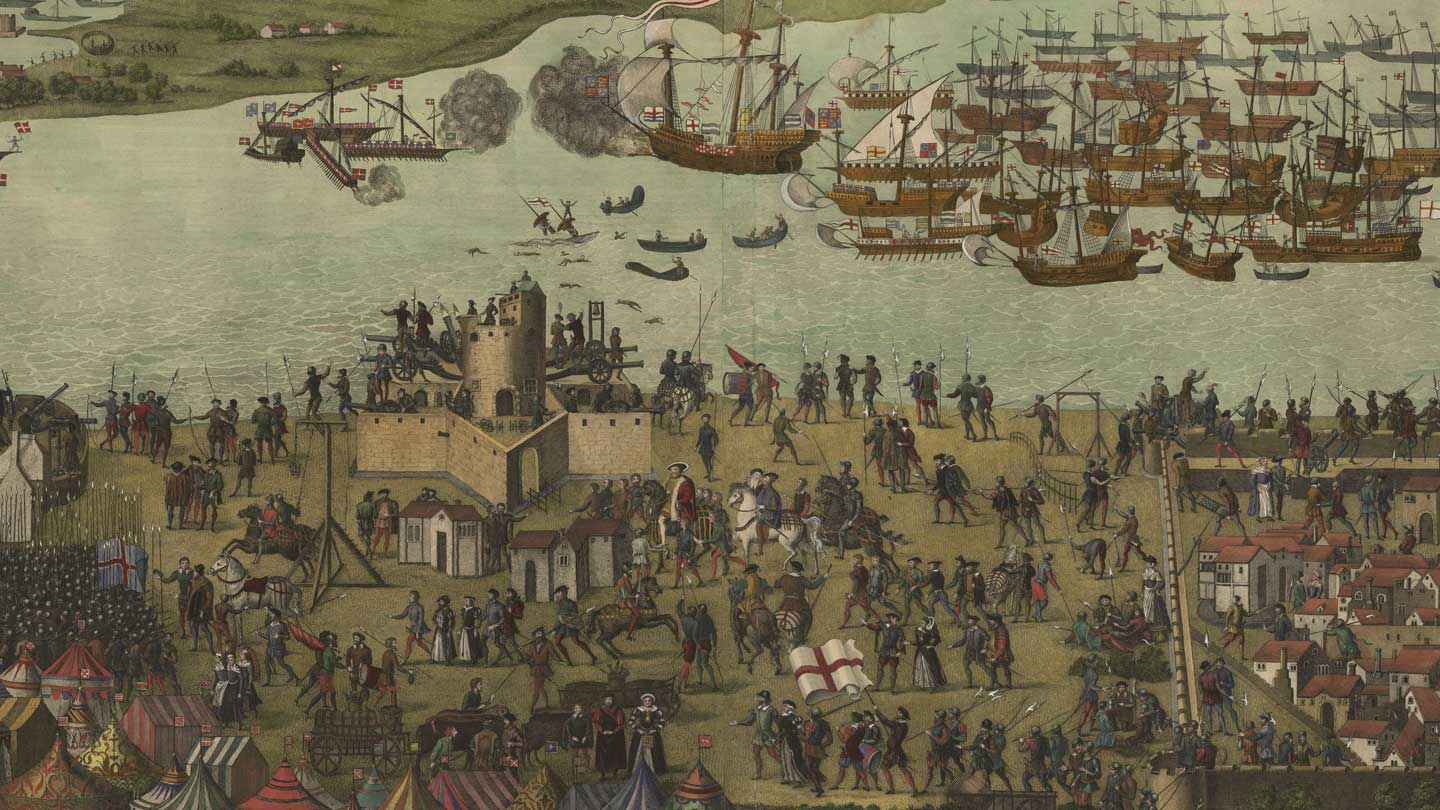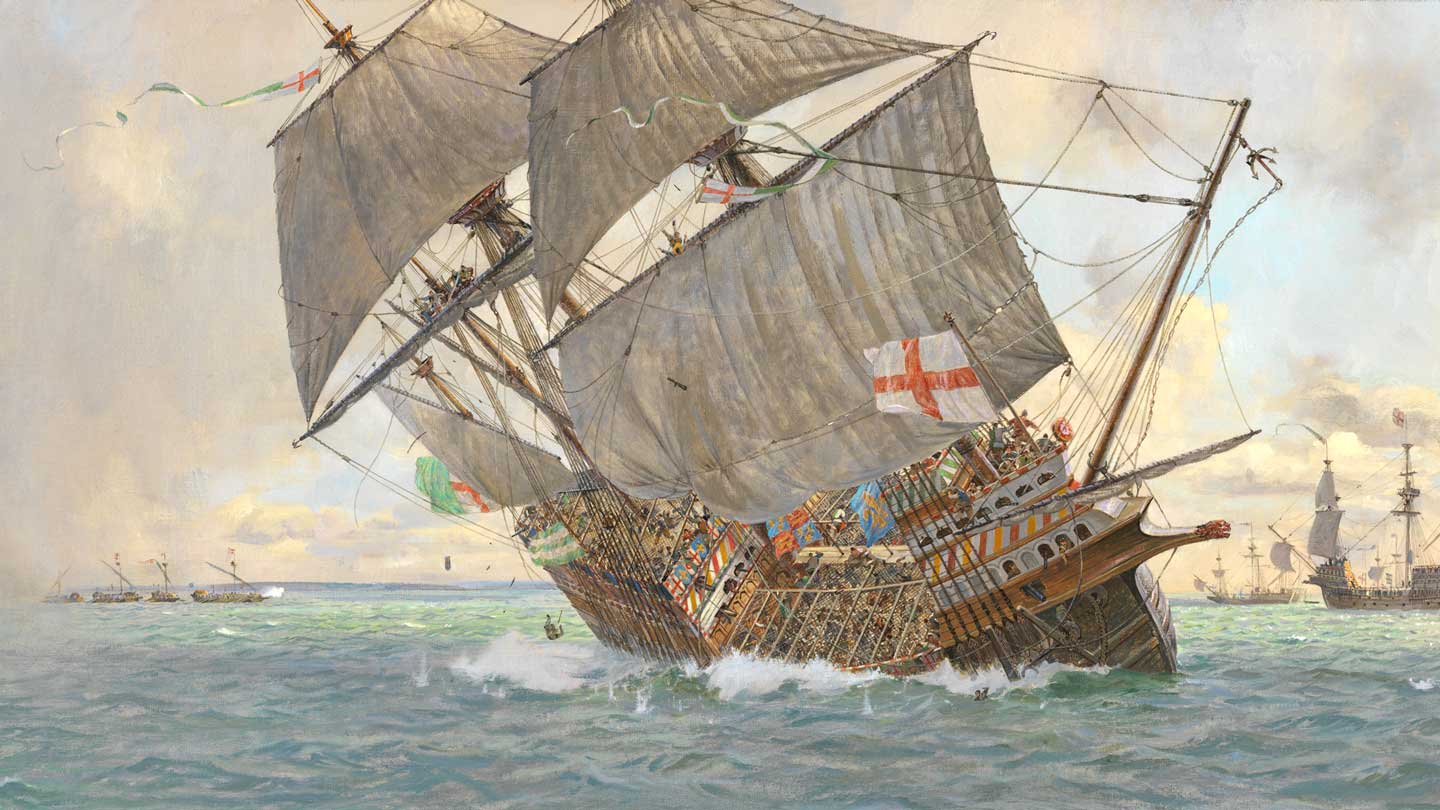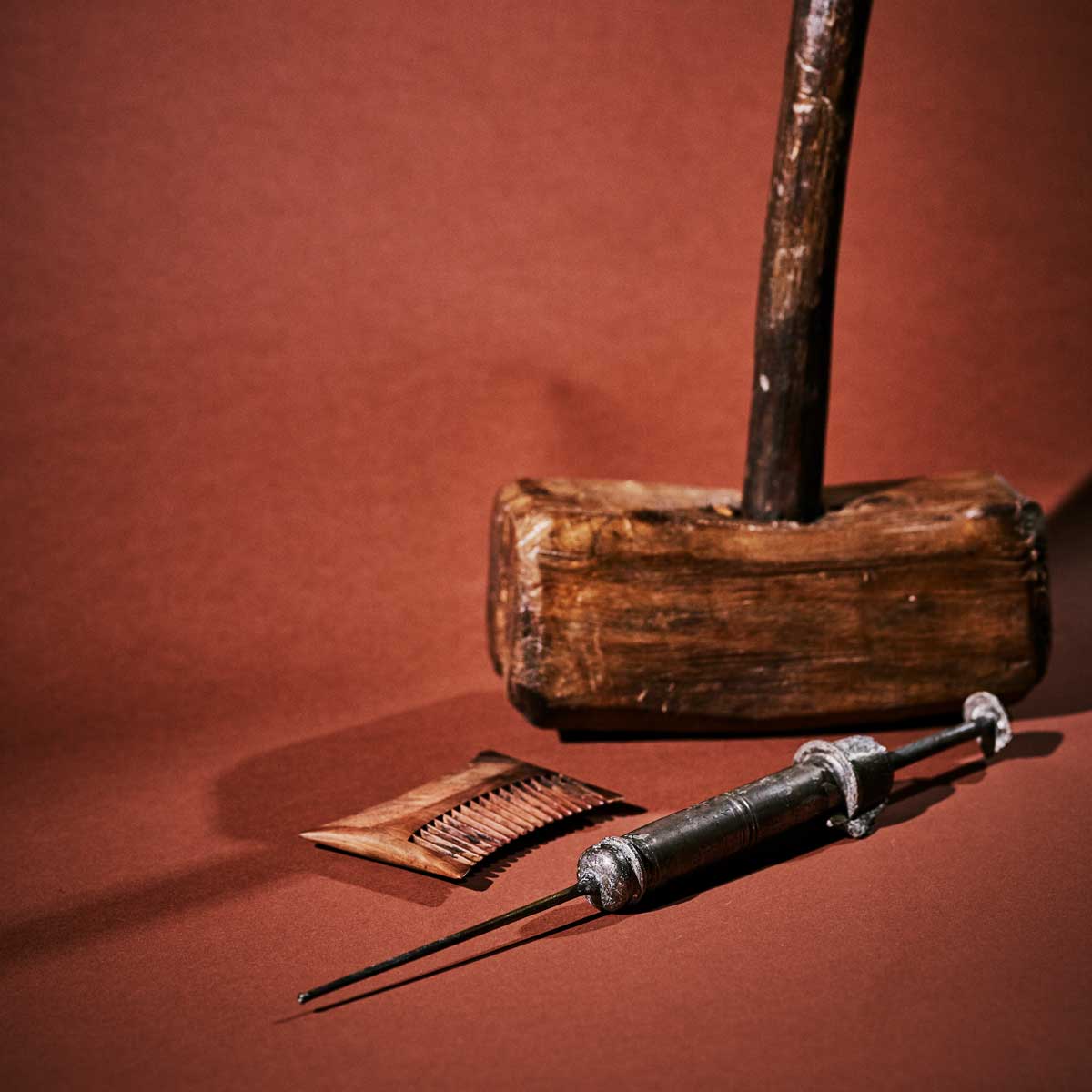Each workshop costs £75; this will rise to £82.50 in September 2024.
Each session is suitable for a maximum of 32 pupils. Most workshops run for approximately one hour, but you will be sent a personalised timetable before your visit.
Each workshop costs £75; this will rise to £82.50 in September 2024.
Each session is suitable for a maximum of 32 pupils. Most workshops run for approximately one hour, but you will be sent a personalised timetable before your visit.

Have you got what it takes to be part of a gun crew? Can you work as a team to defend England against the French?
This is a two-part challenge.
Part 1: Make your own strategic plan to conquer the English or defend Portsmouth from the French invasion.
Part 2: Learn to dismantle, load and fire one of our Tudor guns, working as a team under the Gun Captain! You must listen to instructions and follow orders, but how easy is this on a dark, noisy warship?

Can you solve the historical mystery of the Mary Rose? How do historians learn about the past?
A historical enquiry workshop for pupils to develop key skills: analysing sources, using archaeological evidence, and constructing rigorous arguments. They examine written accounts, archaeological evidence from the excavation of the Mary Rose, and analyse replica objects. Pupils consider the significance of the Mary Rose as a whole and communicate how it contributes to social and cultural history.

What are the theories behind the sinking of the Mary Rose? A practical investigation into the potential causes.
A practical STEM session that combines historical inquiry with scientific experimentation to uncover the most likely reasons for the sinking of the Mary Rose. Was it unstable or overloaded? Was it a design flaw? Which factors combined to cause this disaster? Pupils test predictions relating to stability and the load-bearing capacity of the models and use scientific and historic evidence to support or refute theories.

Using the very latest scientific evidence from the Mary Rose including artefacts and the human remains of her crew, we will explore the world of the Surgeon!
The Surgeon would draw upon centuries-old folk remedies as well as cutting-edge new sciences from across the globe. Pupils compare the knowledge in 1545 to modern medicine before guessing what the surgeon could and couldn’t do. Investigate how he was influenced by war, superstition, religion, governmental change, and developing medical expertise. Pupils consider how the pace and scale of medical knowledge changed over this time period, and the impact society and culture had on medical progress. Would the surgeon kill or cure the crew?